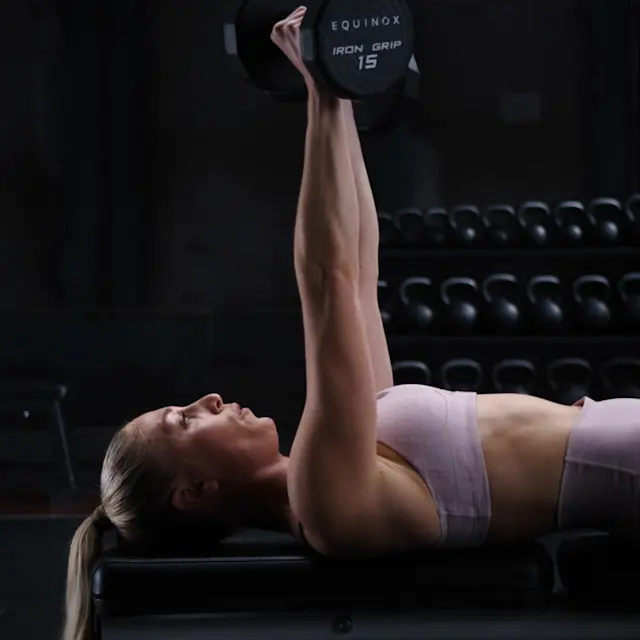Find your baseline and optimize your health as you age.
The Equinox Longevity Assessment is a nine-part series designed to provide members with evidence-based tools to measure and benchmark their fitness age, and provide training guidance to optimize performance. Developed with Michael Crandall, CSCS, a Tier X Coach at Equinox, the full program can be accessed here.
Club members typically have both short-term and long-term wellness goals, like hitting a PR in your Precision Run class or building a certain amount of muscle mass. With people living longer than ever before, though, members also need lifetime goals. Consider this: You invest in your finances so you can have a comfortable retirement. But if you want to enjoy that season of life, you need to invest in your health and create a roadmap for longevity, too.
Longevity is not about living forever — it’s about living better for more years. As the body ages, balance, strength, and cardiorespiratory fitness inevitably decline, sometimes beginning as early as your 30s. Those decrements may seem insignificant in midlife, but they can drop precipitously in later life, affecting both health and quality of life. You can offset those declines by building a strong foundation now.
The Equinox Longevity Assessment was developed to provide members benchmarks for their fitness age. You probably check your blood pressure routinely throughout the year, but measurements like your VO₂ max and grip strength are just as important and are strongly linked to longevity. The assessment includes 16 tests that allow you to see how you stack up against other people of your sex and age. With help from existing research, Crandall developed norms charts so members can self-assess and baseline where they are and adopt ways to train in order to improve. The benchmarks for the various tests are generalized and, while they may be useful for goal setting, what’s considered “excellent” or “has room for improvement” for you personally may differ from those broad recommendations. Personal training can offer a more custom experience to help you achieve your goals.
People who are exceptionally fit in their 20s, 30s, and 40s tend to live exceptionally fit lives in their later years. The time you spend training as a young adult will have an immediate payoff in terms of enhancing your performance in activities you love, whether that’s mountain biking, surfing, or rock climbing. It will also help ensure you can still run a 5K or carry a 15-pound bag of groceries up a flight of stairs in your marginal decade, or the last decade of your life. A little can go a long way. If you’ve been sedentary and are now entering your 60s and 70s, starting to embrace an exercise program can significantly improve your quality of life, says Michael Crandall, CSCS, a Tier X Coach at E by Equinox - Hudson Yards.
Your chronological age, or how long you live, is truly just a number. What you should be more concerned about is your fitness age. This is a measure of whether your body is biologically older — or younger — than your chronological age and is a predictor of disease and mortality risk. Research has found that your VO₂ max may decline up to 15 percent per decade after age 50. But one case study suggests that you could still have the VO₂ max of a 35-year-old when you’re 80 if you train throughout your lifetime and avoid health threats like tobacco and obesity. The goal is to have your fitness age outpace your chronological age, says Crandall.
Dr. Peter Attia, author of "Outlive: The Science & Art of Longevity," says, “exercise is by far the most potent longevity drug.” But staying healthy and strong for the long haul is nuanced. You might be able to run for 40 minutes, but can you sprint to your airline gate and recover quickly? You might be able to deadlift 200 pounds, but can you carry two 20-pound grocery bags for 10 minutes?
To optimize your health as you age, you need a program designed around improving strength, power, muscular endurance, aerobic and anaerobic fitness, balance, stability, and mobility. Each piece of the longevity puzzle is closely interconnected. And let’s not forget social fitness. Having positive social relationships can help people lead longer, happier lives, according to the World Health Organization. Equinox Clubs provides its members with numerous ways to foster social connections, ranging from group fitness classes to events and cross-Club competitions.
Consider your Equinox Longevity Assessment part of your lifelong journey to health and well-being. Retest every six to 12 months to measure your progress and create new goals that will ensure you’ll be able to continue to do the activities you love in your later years.
